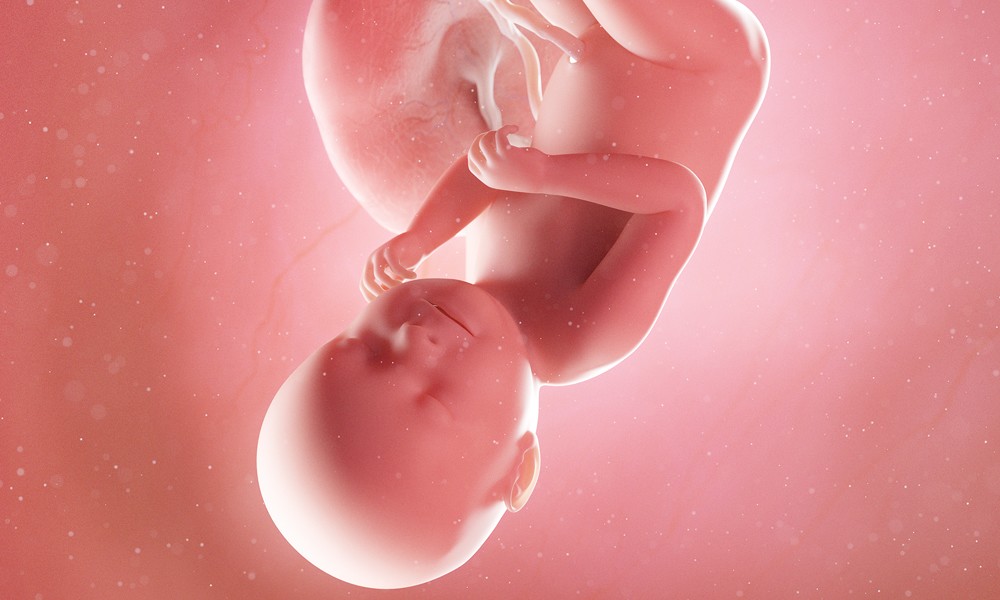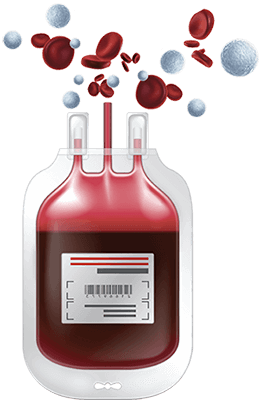Canada's Largest & Oldest Cord Blood Bank
Welcome to the waiting period. You’ve done it mama, you will be holding your newborn soon.
This Week’s Highlights
Your baby’s lungs are still maturing
You baby is now early full term
You will start seeing your healthcare provider weekly
Your Baby at 38 Weeks
Your baby is the length of a leek, measuring about 19.6 inches (49.8 centimeters) long and weighing in at about 6.8 pound (3.1 kilograms). Keep in mind that every pregnancy is different and these measurements are an average. During your prenatal visit this week, your healthcare provider will be able to give you a sense of whether your baby is big or small based on your fundal height measurements (distance from your public bone to the top of your uterus).

Baby Development at Week 38
Many small changes are taking place this week with your baby, but they are important. He or she is putting on surfactant in the lungs and myelin (the fatty substance that lines never cells) is being deposited around the nerves. Your baby’s digestive system is hard at work cleaning up the languo (the fine hair that was covering the body) and vernix, which is being converted into meconium. You will see this greenish-black sticky substance when you clean your baby’s first diaper.
With your due date just 2 weeks away, your healthcare provider will check to make sure that your baby is in position (head down) for birth. This week, there will also be a pelvic exam to check your cervix for dilation (opening) and thinning (effacement). Both of these are signs of readiness for labour, but, it is not possible to predict labour based on dilation and effacement. You can go into labour when you are not dilated at all. On there other hand labour can take hours to weeks even if you are dilated. Every pregnancy is different!

Pregancy Tip
Take a moment to relax and spend some time with your partner. Enjoy these final moments of peace before your baby arrives.

Can Stem Cells be Used to Treat Diseases Other Than Blood Diseases?
Yes! Did you know that physicians have been using cord blood transplants for more than 30 years to treat over 80 different diseases? The list includes blood disorders, metabolic disorders, immune disorders and cancers. You can find a full list of these diseases here →
In addition, there are more than 1000 clinical trials exploring the potential of using stem cells to treat neurological disorders, cancers and heart disease. Check out our clinical trials page to learn more →
How Your Body is Changing at 38 Weeks
This week, you may continue to experience insomnia, frequent need to urinate, pelvic pain from the baby pressing down, swelling of hands and feet and increased vagina discharge.
Even though you have 2 more weeks to go, if you have pregnancy related complications like preeclampsia, gestational diabetes or placental problems your healthcare provider will probably suggest medically-induced labour soon. Your little one still needs a bit more time to mature inside your uterus, so inducing-labour at this stage (unless recommended by your healthcare provider) is not recommended.
At this point in your pregnancy, you are probably feeling that your belly is getting in the way. We advise you to get as much rest as possible and try to engage in activities that have nothing to do with pregnancy
How Far Along are You?
38 weeks in, 2 weeks to go! You are almost at the end of your pregnancy. Even though pregnancy is measured in weeks this means you are in your last month of your pregnancy.
Early Signs of labour
Early labour may begin this week, so here are some signs to look out for.
Contractions – You may have already started feeling Braxton Hicks contractions, or you may have not. These practice contractions usually do not increase in intensity and go away when you change positions. But, if you have painful contractions that are less than 5 minutes apart and have had them for more than 2 hours, it is time to head out to the hospital.
Bloody show – Sometimes the mucous plug (which was covering your cervix during the pregnancy) is lost right before labour begins. You will notice thick mucous like discharge, which may be tinged with blood. This is a sign that your cervix is becoming dilated.
Water breaking – If water is trickling down your legs, this means your water has broken. This is a sign of labour and you should contact your healthcare provider to find out when you should be heading to the hospital.
Back pain – Dreaded back labour, intensifying pain in the back, is another sign to watch out for. Contact your healthcare provider if you back pain suddenly intensifies and is constant.

2 WEEKS TO GO!
Approximately 1 in 10 Babies Arrive Ahead of Their Due Date.
Pregnancy Symptoms at Week 38
Braxton Hicks contractions – Braxton Hicks contractions are named after Dr. John Braxton Hicks, who first described them. They are the result of muscles in your uterus flexing, preparing your body for labour. However, unlike true labour contractions, they are not strong enough to push your baby out. Braxton Hicks contractions often go away when you shift your position. They are also irregular and do not last for more than 1 minute.
Insomnia – Several other pregnancy symptoms that keep you from getting a good night of sleep like heart burn, leg grams, and frequent need to urinate can be behind insomnia. Some moms believe it is nature’s way of preparing you for the sleepless nights to come once the baby is born. Exercise, getting fresh air, reducing your caffeine intake, and limiting screen time right before bed can help you get some shut eye.
Swollen feet and ankles– Edema or swelling of feet and ankles is caused by increased water retention during pregnancy. The increase in fluids is cause by increased blood flow to both your and your baby and the fact that the blood gets returned back to your heart at a slower rate. You may also experience more swelling in your feet, if you’ve gained extra weight. A relaxing footbath or resting your feet by putting them up every so often can help.

Dry, itchy skin – As your belly and breasts grow, the stretching skin can often cause itchiness. Staying hydrated and applying moisturizer can help minimize the dryness and the itchiness.
Leaky boobs – Your breast start making colostrum in the first trimester. Colostrum is is the term for that first milk, which is packed with antibodies that your baby, will receive. You may experience leaky boobs in the third trimester because the levels of prolactin, the hormone that revs up milk production, keeps steadily increasing. Small leaks in colostrum during this stage of pregnancy are normal. You may want to consider putting nursing pads inside your bra to catch the overflow.
Changes in vaginal discharge – It is normal to notice changes in vagina discharge at this stage of pregnancy. But, if this discharge looks watery it may be amniotic fluid. In this case, you will need to contact your healthcare provider. You may also notice pinkish (blood-tinged) vaginal discharge when you lose your mucous plug. Loosing your mucous plug may be a sign of impending labour.




